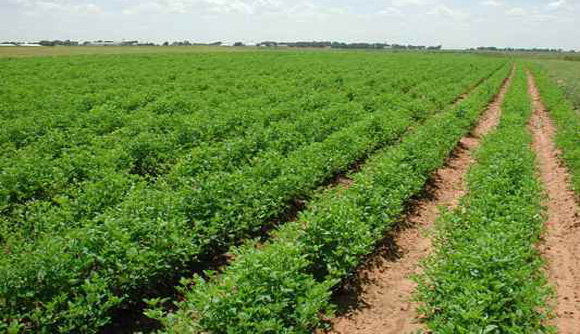- Washington “follows with interest” Morocco’s openness onto Africa (John Kerry)Posted 11 years ago
- The trial of South African Paralympic champion Oscar Pistorius opened in Pretoria on Monday.Posted 11 years ago
- USA welcomes efforts of King Mohammed VI in MaliPosted 11 years ago
- Egypt’s population reaches 94 millionPosted 11 years ago
- Mugabe celebrates his 90thPosted 11 years ago
- Moroccan Monarch to Build a Perinatal Clinic in BamakoPosted 11 years ago
- King Mohammed VI handed a donation of bovine semen for the benefit of Malian breeders.Posted 11 years ago
- Moroccan King’s strategic tour to Africa: Strengthening the will of pan African Solidarity and stimulating the south-south cooperation mechanisms over the continentPosted 12 years ago
- Senior al-Qaida leader killed in AlgeriaPosted 12 years ago
- Libya: The trial of former Prime Minister al-Baghdadi AliPosted 12 years ago
Africa: time for an Agricultural green revolution
 Achieving food independence or even transforming Africa into a major producer of agricultural products around the world: this is not a dream but a goal to reach for the Green Revolution Forum that took place in Accra, Ghana. The need to support agriculture is more than evident, but Africa must also recover from twenty-five years of structural adjustment policy and six major droughts.
Achieving food independence or even transforming Africa into a major producer of agricultural products around the world: this is not a dream but a goal to reach for the Green Revolution Forum that took place in Accra, Ghana. The need to support agriculture is more than evident, but Africa must also recover from twenty-five years of structural adjustment policy and six major droughts.
The food crisis of 2008 has completed to convince the importance of a strong agricultural policy.
Riots and demonstrations that just took place in Mozambique, after the government introduced price increases on food, fuel and other goods have reflected the urgency of this shift.
Today, Agricultural experts believe that improving conventional seeds and treating the soils is mandatory. The issue of fertilisers is essential: Africa is spending very little fertiliser, only 8 kg per hectare. Studies and applications have proved 30 kilos per hectare would change the face of agriculture. However, Mr. Namanga Ngongi from the Alliance for the Green Revolution in Africa (AGRA) has stated that improved technology is not the only issue, but organising agricultural structures is also needed: reducing transaction costs, a better management of training and marketing and mobilizing local banks. It is not the lack of capital, but rather experience and methods to assist small farmers. Other agronomists believe that the future of agriculture in Sub-Sahel Africa (SSA) should be based on agro-ecological systems and low-input agro-forestry. But the honorary President of the Network of Peasant Organisations and Agricultural Producers in West Africa (ROPPA), Mamadou Cissokho, is assuring that the solution to the African agriculture is not only technical or organisational. He believes that agreements of the World Trade Organisation have removed border protections and now Africa imports up to 40% of the food. We have no regional or continental market and we must develop research, but also border protection of our food crops.
This view assumes a new significance with the purchase of 4.5 million hectares of land that are about to be acquired by foreign investors to produce agro-fuels for the European market. “It’s madness to get into the bio-energy”, Namanga Ngongi said. The continent is short of food and nearly 300 million of Africans do not eat for their hunger. We must first produce to feed the population.
Kofi Annan, former Secretary General of the United Nations and chairman of AGRA said that all conditions are gathered for the Green Revolution to occur in Africa, but the political will is a prerequisite. And that starts to happen also: Eleven African governments are spending 10% or more of their budgets in agriculture. Many Africans have understood that food security is not the only goal, but creating employment and reducing rural exodus must go together. “The responsibility for this situation is also engaged with the World Bank, which has not invested in agriculture for the last twenty years” , Kofi Annan said.
